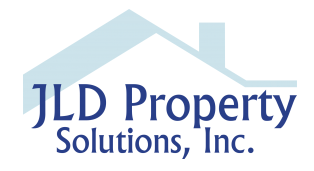Inherited property or a property in probate is one of the most difficult ones to deal with. You never know when, due to a chain of unexpected events, you might end up being the owner of an inherited property. With all the laws and bureaucratic processes involved, the changing of titles of ownership itself is a tedious, time-consuming process. By the time, the property is officially yours, it is in dire need of maintenance. Suddenly, you are left with a huge financial responsibility and you don’t know what to do about it.
While there are many challenges relating to selling an inherited property, we list 5 of the biggest ones:
Limited Financial Resources For Renovation
It is common knowledge that the better you upgrade your property, the bigger the pool of buyers you will have, and the higher the selling price you can get. However, renovation and repairs don’t come cheap. Your money may be tied up elsewhere or you simply may not have the finances to upgrade the property. There are many financing options available such as private lenders or short-term partnerships that can help you get the capital to renovate but at the end of the day, they too will hurt your profits.
High Carrying Cost
This is perhaps the biggest challenge of an inherited property. For as long as the property is yours, you will incur carrying costs. Each month you will pay associated property tax, insurance, utility bills, and the like. Also, there will be the attorney’s fee to deal with the property while in probate. With each passing month, your expenses will mount and can push you into a desperate situation where you are likely to make hasty decisions with regards to selling the property, significantly hurting your chances of getting the most out of selling it.
Selling The Property As-Is
A lot of times, due to limited financial resources and associated carrying costs, you might be forced to sell your property as-is. This puts the financial burden of repairing and upgrading the property on the buyer automatically shrinking your buyer pool size. Additionally, the extra amount they will have to spend on the property means buyers have less to spare for actually buying it. A significant discount on the selling price will be expected. While you may think even the smallest profit is a bonus, there will be a lot of associated expenses incurred in the process and you may ultimately find yourself not better by off by any margin.
Little to No Local Market Knowledge
In many cases, you may inherit a property in a different city or state and have no knowledge of the local market there. This means you don’t know things such as what buyers are looking for in a property in that market, what is the current going-rate, what are the best renovation areas that will give the highest return on invest etc.. As a result, even if you have the capital, you might end up spending it without much benefit. Online research can help but is no substitute for first-hand knowledge. Reaching out to local real estate agents and contractors can prove to be helpful in such cases.
Time-frame to Sell
Going through probate is a drawn-out process and can leave you exhausted. After this, you have two options: You can either decide to make all the upgrades no matter how long it takes so that you can demand a good price for the final result, or you can decide to sell your property for the first half-decent offer you get. The first option has significant advantages and is likely to deliver more profitable results.
Most buyers like to get turnkey fresh properties, which is why it is best to fix up your property before putting it on the market.
If you have inherited a property and want to know of the options available and how we can help, contact us today!

